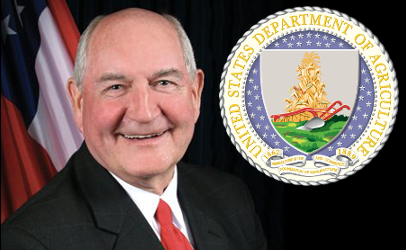How Is the Situation Between Usa Banned Brazilian Beef
The U.S. Department of Agriculture has suspended imports of all fresh beef from Brazil because of recurring food safety problems documented since March, when the agency began inspecting 100 percent of all meat from the South American country.
During his confirmation hearing 12 weeks ago, Agriculture Secretary Sonny Perdue said he thought an embargo against Brazilian beef would be an over-reaction to a food safety bribery scandal that involved illegal payments to Brazil's three most recent presidents, including incumbent Michel Temer.

"If we go to embargoing there likely will be retaliation, perhaps around the world," Perdue said March 23 during his confirmation hearing before the Senate Committee on Agriculture, Nutrition & Forestry.
Results of stepped up inspections of Brazilian meat products provided evidence for the secretary to change his position. The USDA's Food Safety and Inspection Service (FSIS) has been inspecting 100 percent of Brazilian meat products since March.
"FSIS has refused entry to 11 percent of Brazilian fresh beef products. That figure is substantially higher than the rejection rate of 1 percent of shipments from the rest of the world," according to a news release issued late Thursday by the USDA.
"Since implementation of the increased inspection, FSIS has refused entry to 106 lots — approximately 1.9 million pounds — of Brazilian beef products due to public health concerns, sanitary conditions and animal health issues."
No shipments from Brazil will be allowed entry to the United States until the Brazilian Ministry of Agriculture takes corrective action, subject to USDA approval.
Brazil's federal government had pledged to address the food safety concerns raised by U.S. officials, promising to "self-suspend" five beef production operations from shipping product to the United States. The action Thursday to suspend all beef imports from Brazil supersedes the "self-suspension," according to the USDA news release.
"Although international trade is an important part of what we do at USDA, and Brazil has long been one of our partners, my first priority is to protect American consumers," Perdue said in the release. "That's what we've done by halting the import of Brazilian fresh beef. I commend the work of USDA's Food Safety and Inspection Service for painstakingly safeguarding the food we serve our families."
 The Brazilian investigation
The Brazilian investigation
On March 17 Brazil deployed 1,100 police officers to execute 309 court orders and conduct 194 searches across seven states. When the dust initially cleared, 33 public employees were removed from their jobs.
"Operation Weak Flesh," as it was named by Brazil's federal police, initially involved allegations of bribery by two major exporting companies, JBS SA and BRF SA. After the St. Patrick's Day raids, Brazilian President Michel Temer tried to reassure international trading partners by pointing to the fact that just 21 of the country's 4,837 meatpacking facilities were swept up in the probe.
By the end of March, the federal police in Brazil had accused more than 100 with taking bribes in exchange for clearing rancid meat for export with all the necessary paperwork. Two of Brazil's largest meat exporting companies, JBS SA and BRF SA, remained among the top targets of the investigations.
However, police soon suspended operations at three more processing plants, raising the number of closed meat processing plants to six out of 21 being targeted by Brazilian law enforcement and health authorities.
International markets reacted. China and some others temporarily banned beef imports from Brazil.
Then, seven executives of JBS SA, including Chairman Joesley Batista, admitted making illegal payments to Brazil's three most recent presidents, including incumbent Michel Temer.
The seven executives negotiated a plea bargain with state prosecutors and agreed to pay a fine of $225 million reals — $67.93 million U.S. President Temer denied any wrong doing.
Some federal lawmakers in the U.S. began calling for an embargo against Brazilian beef in late March, including Sen. Heidi Heinkamp, D-ND, and Sen. Jon Tester, D-MT. Also, Sen. Debbie Stabenow, ranking Democrat on the Senate ag committee, has been on record since Perdue's confirmation hearing with a suggestion that FSIS conduct "a larger review of its equivalency finding for Brazil's food safety system."
JBS SA is the world's largest protein producer. It has 36 Brazilian production facilities. The multi-national company reported sales of $33.9 billion, of which half were generated by the JBS USA subsidiary. The subsidiary had a beef production capacity of 29,000 daily in the states and 4,000 in Canada. It has a dozen feedlots in the U.S. and Canada with capacity for almost one million head. JBS USA also processes 90,000 hogs daily, and 6.6 million birds a day through its 25 Pilgrim's Pride processing facilities.
(To sign up for a free subscription to Food Safety News, click here .)
Source: https://www.foodsafetynews.com/2017/06/u-s-stops-all-imports-of-brazilian-beef-for-food-safety-concerns/
0 Response to "How Is the Situation Between Usa Banned Brazilian Beef"
Post a Comment